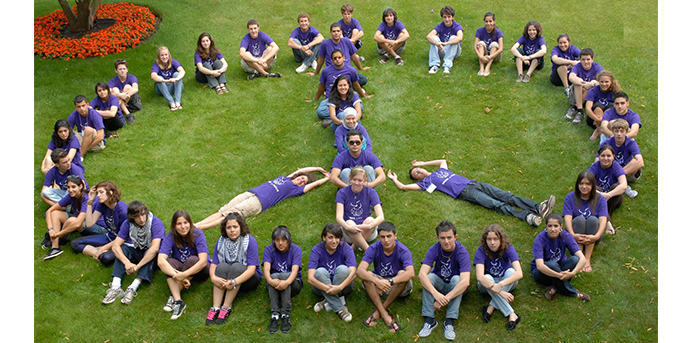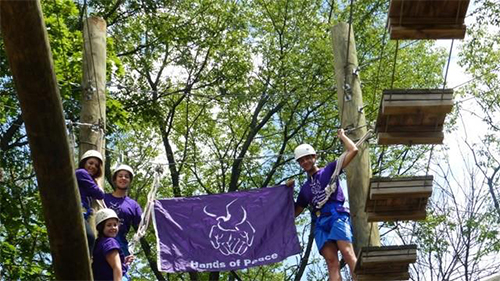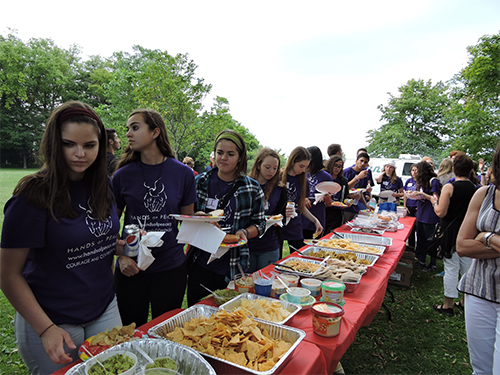Growing up in the idyllic northern suburbs of Chicago afforded me a life of comfort. It was not until I got involved in Hands of Peace, an interfaith organization founded in Chicago to empower young people to raise their voices as leaders of change, that I developed a genuine curiosity and concern for our turbulent world. Through the power of dialogue facilitated by the Hands of Peace program, Palestinians, Israelis and Americans partner to pursue peace, equality, freedom and justice. The Israeli and Palestinian peers I befriended during Hands of Peace shrunk my world; they brought a conflict occurring thousands of miles away to my doorstep and, more importantly, my heart. No longer were suicide bombings, rocket attacks, and army raids in civilian areas distant acts of violence. These traumatic events were affecting my friends, and by extension, myself.
Israeli and Palestinian young people continue to travel to the Chicago area and join American teens to work toward peace. Hands of Peace now has a presence in San Diego as well, and the summer programs are currently underway. I believe that this year’s participants will be catapulted into global citizenry, like so many other alumni that have come before them, including myself. After going through the Hands of Peace program, I could no longer let my comfortable life result in complacency. Hands of Peace alumni know and care too much to not act as stewards of a better world.
My personal journey after Hands of Peace led me to pursue an undergraduate degree in international politics at the Georgetown School of Foreign Service. This included studying abroad in Jordan, where I lived with a Palestinian Muslim family. Some members of my Jewish community back home saw it as a reckless risk. I saw it as an eye-opening experience and a chance to bridge divides I previously believed to be intractable. While in Jordan, I volunteered for an organization called the Collateral Repair Project, which provided relief to Iraqi refugees of the U.S. War on Terror. My life was full of enriching contrasts: a Jew becoming part of a Muslim family, and an American facing the unintended consequence of my country’s war.
After college, I was awarded a year-long leadership development fellowship in Israel. I embedded myself in a handful of nonprofits to develop their conflict resolution programs. My year culminated in publishing a book called “Words & Walls,” which tells the story of the conflict through political graffiti. The next step on my Hands of Peace-inspired path was to work as a Yemen and Syria researcher at a policy think tank. With the expertise I developed, I wrote analyses for publications such as Foreign Affairs, The Jerusalem Post and The Atlantic.
With the Middle East in political gridlock, I decided the most tangible way for me to make a difference is through economic development. This led me to pursue an MBA at Stanford Graduate School of Business, where I graduated earlier this year. My long-term professional goal is to ease suffering through private sector economic development in places facing struggles like the Middle East.
Every summer, more than 80 young people in Hands of Peace harness the power of dialogue and connection across lines. They discover that the psychological barriers that divide us crumble easily when bridged by face-to-face dialogue. All that’s left between my Hands of Peace friends after they go back to their war-torn homes are physical barriers — walls that don’t reflect how they feel about the “other” in their hearts. Multiplied many times over, these Israelis and Palestinians, supported by their American friends, will become one of this region’s last remaining hopes.
Adam Heffez is an alumnus of the Hands of Peace program (class of 2006) and former assistant program director. He has since led a career in Middle East policy and global business strategy.
More from Make It Better:



